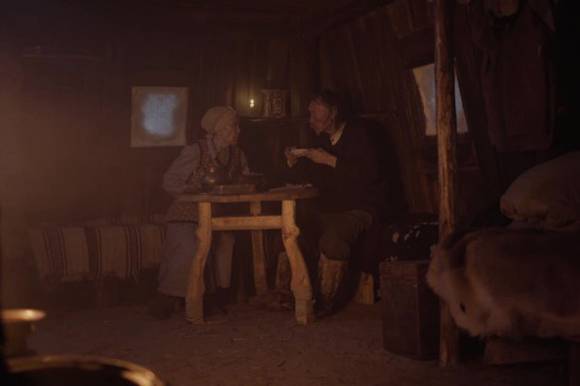Set in 1930s in the deep taiga of Yakutia in the far north of Russia it is a story of the simple life of the people who live with their cows, hunting and fishing. But one day life in the village is changed when an eagle files into the garden of an old couple. The eagle is sacred to the people of Yakutia and the eagle eventually takes up life in the home together with the old couple in this fable.
The festival finished last night with a party at the Izvestia Hall near Pushkin Square instead of its usual all night bash on the banks of the Moscow river in Gorky Park due to the festival’s earlier April slot this year. The festival is usually held in late June but the FIFA 2018 football contest, which is being held in Russia this year in June and July, meant the festival was shifted to an earlier date.
One of the undoubted highlights of this year’s festival was the programme Baltic Films Throughout a Century, a retrospective which screened six films from Lithuania, Latvia and Estonia spanning the past 100 years.
The Russian Films programme curated by Irina Pavlova unspooled the top Russian films produced over the past year and as usual was one of the biggest draws for foreign critics attending the festival.
Prize Winners:
Main Competition
Best Film
The Lord Eagle (Russia)
Directed by Eduard Novikov
Special Jury Prize
NU (Russia)
Directed by Yang Ge
Best Director
Spitak (Russia, Armenia)
Directed by Aleksandr Kott
Best Actor
Kieran Charnok for Stray (New Zealand)
Directed by Dustin Feneley
Best Actress
Giovanna Mezzogiorno for Naples in Veils (Italy)
Directed by Ferzan Ozpetek
Best Documentary in the Documentary Competition
The Cleaners (Germany, Brazil)
Directed by Hans Block and Moritz Rieswiec
Best Film of the Short Films Competition
Bonbone (Palestine, Lebanon)
Directed by Rakan Mayasi
Special Prize for Outstanding Contribution to World Cinema
Oleg Tabakov
Special Prize for Outstanding Achievement in Acting and Devotion to the Principles of the Stanislavsky School
Natasia Kinski




















